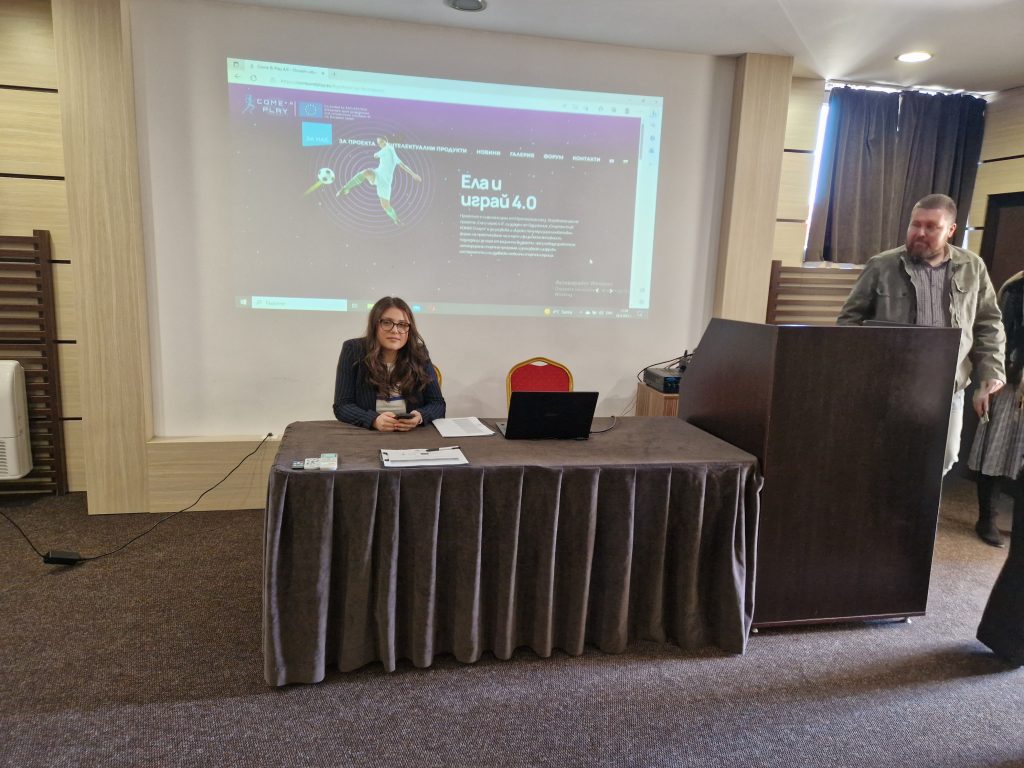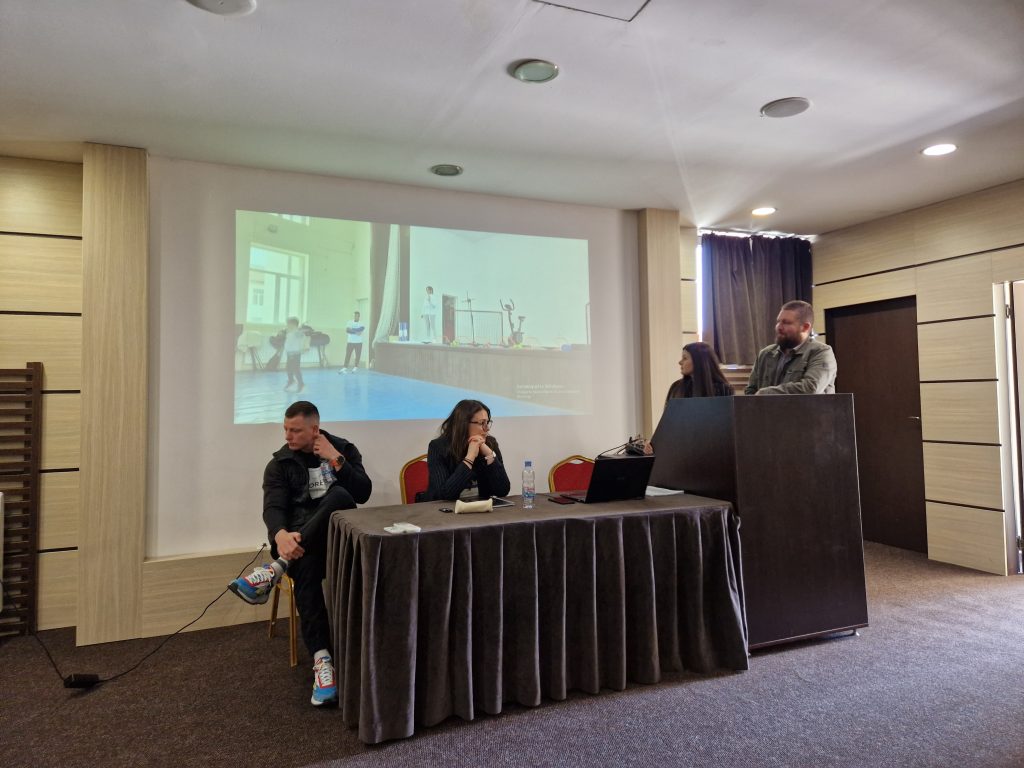National Conference in Bansko Explores the Power of Sports for Inclusion and Health
On April 27th and 28th, the “Sport Club Comac Sport” Association hosted a two-day national event in Bansko. The event was held within the project “Come and Play 4.0”, EAC-2020-0745, co-funded by the EU. The conference brought together sports enthusiasts, experts, and stakeholders to discuss the importance of sports for inclusion and health. The conference featured various panels and presentations, with a particular focus on the integration of 3D holograms in sports.
The sports club is part of the educational complex “Tsar Simeon Veliki”, which includes the Private kindergarten “Rositsa”, The private primary school “Tsar Simeon Veliki”, The private secondary school of science and entrepreneurship “Asen Yordanov” and the training center “Tsar Simeon Veliki”.
The event began with registration and a warm welcome to the participants. The opening remarks by Konstantina Nesheva emphasized the significant role of sports in promoting inclusion and enhancing physical and mental well-being. The keynote speech emphasized the significance of sports in promoting a healthier society and fostering diversity.
One of the key highlights of the conference was the introduction of the new sports program and its digital toolkit. The presentation by Petar Stoyanov illuminated innovative ways in which technology can enhance sports experiences and provide accessible resources for athletes and trainers. The conference highlighted the use of 3D holograms in sports, which is revolutionizing the way athletes train and spectators engage with the game.
Throughout the conference, several engaging panels and workshops were held. The panel discussion on intergenerational sports programs showcased the best practices and success stories of initiatives that bridge the generational gap through sports. Participants learned about effective strategies for implementing inclusive sports programs, which ensure equal participation and benefits for all individuals.
In addition, a case study presentation was delivered by Yanitsa Boycheva, highlighting successful implementations of inclusive sports initiatives. These initiatives have not only provided opportunities for individuals with disabilities, but they have also fostered a sense of community and empowerment. The session included a Q&A segment, during which participants had the opportunity to explore the practical aspects of these programs in greater depth.
The conference also focused on the physical and mental health benefits of sports. A presentation by Angela Mitrovska highlighted the positive impact of sports on overall well-being, emphasizing the importance of maintaining an active lifestyle. The workshop on promoting a healthy lifestyle through sports and physical activity provided valuable strategies for participants to implement in their communities.
The second day of the conference began with a presentation on education through sports, featuring several case studies that emphasized the educational benefits of sports beyond physical fitness. The expert panel, moderated by Dr. Mladen Lambeff, discussed the challenges and opportunities of promoting inclusive sports in remote settlements in Bulgaria’s Southwest region. They addressed the need for tailored initiatives in underserved areas to ensure inclusivity.
Building partnerships for sustainable sports initiatives was another critical theme covered during the conference. A workshop provided insights into effective collaboration among organizations and stakeholders to create long-term impact, ensuring the success and sustainability of sports programs.
The event emphasized the significance of involving local authorities and NGOs in sports and physical activity initiatives. A roundtable discussion was held to allow participants to share their experiences and brainstorm ideas on how to better involve key stakeholders in promoting sports at the grassroots level.
As the conference came to an end, a summary of the key lessons and takeaways emphasized the importance of sports in promoting inclusion, health, and community development. The closing remarks expressed gratitude to all the participants and emphasized the importance of continuing to advance sports initiatives that promote diversity, well-being, and accessibility.
The national conference provided a platform for exchanging knowledge, inspiring participants to take action and implement the valuable insights gained during the event. The conference showcased the exciting potential of technology to enhance the sports experience and create a more inclusive sporting landscape with the integration of 3D holograms in sports.
You can see some of the materials used in the conference below:
Presentation – Education through Sport, Case Studies
ENG - Education through Sport, Case Studies
Presentation – Case Study Presentation, Successful Implementation of Inclusive Sports Initiatives
ENG - Case Study Presentation, Successful Implementation of Inclusive Sports Initiatives
*The information and views set out in this publication are those of the authors and do not necessarily reflect the official opinion of the European Union. Neither the European Union institutions and bodies nor any person acting on their behalf may be held responsible for the use which may be made of the information contained therein.







